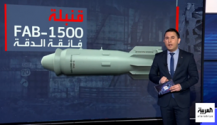FriedRiceNSpice
Major
"China should not gamble on the assumption that the leaders in the US arestillreasonable people."
The above statement should be translated into Chinese and engraved on a giant plaque at Zhongnanhai.
Reasonable? Extremely rarely. But rational? Most of the time. I'm going to refrain from inserting some cliche Sun Tzu quotes here, but you never want to underestimate your adversary. When formulating grand strategy, you should always assume that your adversary is going to act rationally in the pursuit of their interests.
When assessing US behavior, I think people need to ignore what Washington says and focus solely on what Washington does. The narrative pushed by US dominated media will never reveal the true reasons or intent behind US actions, as information warfare is just another tool in Washington's toolbox. The official narrative is primarily intended for consumption by the masses within the US and vassal states first and foremost, and secondly to extend influence in neutral states and sow discontent in adversarial states. Washington is run by (and I'm not talking about the average Congressmen and other participants in the theatrics) highly intelligent and rational people who are definitely not drinking their own Kool-Aid.
The US has a tendency to engage in projection, and I believe a fairly accurate, "tell" for the true intent of Washington is to take a look at what the US tends to project on China.
1) "The CPC prioritizes the survival of it's regime and it's monopoly on power rather than the interests of the Chinese people." -> "Our political elites prioritize their own survival and their monopoly on power rather than the interests of the American people."
2) "China engages in mercantilism and doesn't play by the rules of the rules-based international trading order." -> "We plan to revert to mercantilism and protectionism and abandon free trade since it no longer serves our interests to do so."
3) "China practices neo-colonialism and exploitation of the resources of developing nations through debt-trap diplomacy and dealing with corrupt dictators that regularly engage in human rights abuses." -> "We intend to monopolize the practice of neo-colonialism through our use of the IMF and military backing of corrupt dictators that will suppress dissent for us."
4) "China's naval buildup and aggressive actions in the SCS belies China's intentions to dominate trade and the nations of the regions and is a challenge to our belief of Freedom of Navigation." -> "We intend to maintain control over maritime trade and critical sea lanes throughout the world."
5) "China's window of opportunity of forced reunification is running out and will invade Taiwan within the next decade." -> "Our window of opportunity for maintaining our hegemony is running out and we intend to provoke a conflict in the Taiwan Strait within the next decade."
6) "China uses its economic clout to further it's political goals through economic coercion." -> "Sanctions and control of the global financial system are our means to achieve our political goals and coerce nations to act in our interests."
All of the US's actions should be viewed in the context of great power competition between the incumbent dominant world power and the rising world power. Of course, the US may make miscalculations here and there and conflicts of interest may arise within the different factions (ie the Israel lobby) that comprise Washington's political elite. Ultimately, discussions on China's grand strategy for navigating this great power competition will be far more productive if we can ignore the narrative pushed by the Western liberal media, detach ourselves emotionally, and view Washington as a rational actor in pursuit of maximizing its own interests.
Last edited:



